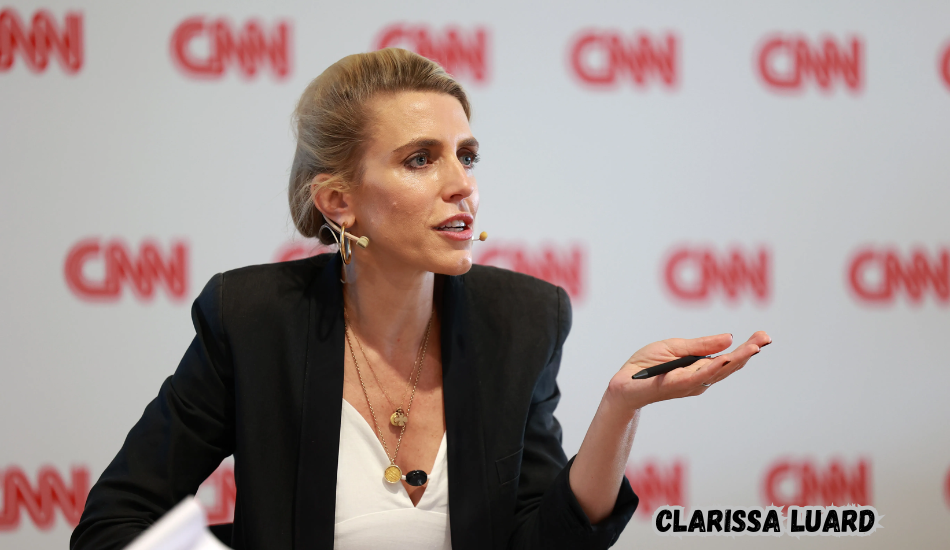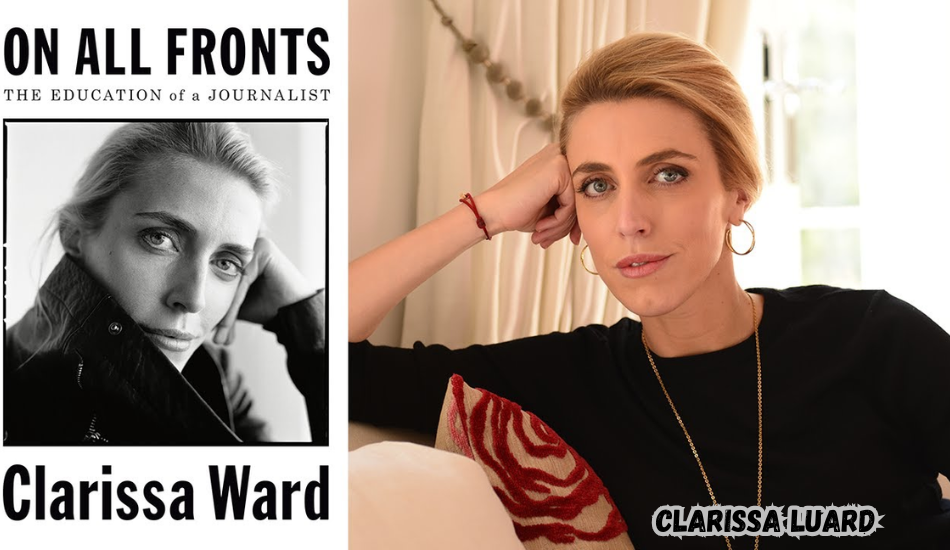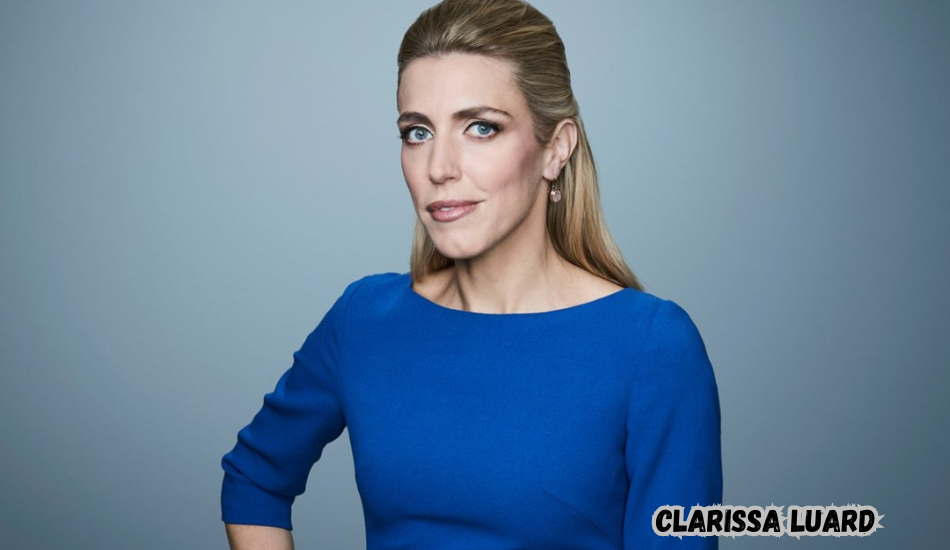
Clarissa Luard was a British literary administrator and publishing professional, born in Great Dunmow, Essex, England. She was widely recognized for her work at the Arts Council of England, where she served as senior literature officer, and for championing authors’ rights while supporting literary projects, independent press publications, and initiatives like Write Out Loud. Over her career, she influenced countless writers, promoted creativity in publishing, and played a key role in shaping literary standards across the UK.
At the time of her death in 1999, she was aged 50. While exact height, weight, and net worth details are not publicly documented, her impact on literature and publishing remains significant. Luard is also remembered for her personal connections, including her marriage to renowned author Salman Rushdie, and her legacy continues through awards and programs established in her honor. The story below tells you everything you need to know about Clarissa Luard biography.
Quick Stats
| Attribute | Details |
|---|---|
| Full Name | Clarissa Luard |
| Date of Birth | December 4, 1948 |
| Place of Birth | Great Dunmow, Essex, England |
| Date of Death | November 4, 1999 |
| Age at Death | 50 |
| Nationality | British |
| Profession | Literary Administrator, Arts Officer, Public Relations, Literary Agent |
| Religion | Christian |
| Education | Harlow Technical College |
| Career Highlights | Literature Officer at Arts Council of England, Advocate for Authors’ Rights, Write Out Loud Project, New Writing Anthology |
| Family | Married Salman Rushdie (1976–1987), Son: Zafar Rushdie (born 1979) |
| Legacy | Clarissa Luard Award, Lasting influence on UK literature and women in publishing |
| Height | Approx. 5’6″ (168 cm) |
| Weight | Approx. 135 lbs (61 kg) |
| Net Worth | $10 million |
Early Life and Family Roots
Clarissa Luard was born on December 5, 1948, in the tranquil village of Great Dunmow, Essex, to a family with strong political connections. Growing up, I often thought about how the environment develops character, and in Clarissa’s case, her family’s strong ties to China and its involvement in global politics seems to infuse in her a natural interest and sense of duty from an early age. The combination of cultural understanding and political acumen in her household laid the groundwork for her future career in literature and publishing.
Living in a village like Great Dunmow while being aware of her family’s worldwide connections allowed Clarissa to develop a remarkable grasp of the larger world outside the little streets and landscape she called home. Her background in such a politically important family shaped her perspective on social structures and the value of influence, which I’ve learned to understand as I observe leaders in creative fields. It’s remarkable to observe how these early experiences with family, China, and politics shaped Clarissa, who would later leave an indelible imprint on the literary community.
Education and Early Inspirations
Clarissa Luard did not have a university education, but she did attend Harlow Technical College, where she developed a great literary sense that would serve her well throughout her career. From my own observations of creative professionals, early exposure to structured instruction, even outside of formal universities, frequently impacts vision and discernment. Her academic years coincided with her involvement in humanitarian organizations such as Lepra and Biafran aid in 1970, providing her with real experience in organization and leadership that few young people receive at such a young age.
After college, she worked as a press officer at the Prima PR Agency for four years, specializing in fashion clients. I can personally attest to how meticulous attention to detail in seemingly little initiatives can influence future success. She honed her skills in choreographing catwalk presentations, combining delicate, subdued autumn colours with a vision that matched originality and professionalism. This combination of formal schooling, humanitarian labor, and hands-on public relations experience paved the way for her subsequent creative achievements.
Starting a Career in Publishing
Clarissa Luard began her literary career in 1974 as a publicity manager at Paul Elek Ltd, where she collaborated with a talented, undiscovered writer and gained an early insight of the publishing process. According to my views of industry careers, beginning at this hands-on level frequently provides people with practical insights and confidence in navigating complex creative networks. She eventually joined literary firms such as AP Watt, where she worked with Hilary Rubenstein on contractual arrangements that required clarity, vision, and negotiation abilities.
By 1986, Clarissa had established herself as a significant literary agent, assisting clients such as Michael Holroyd in securing a record advance of £625,000 for his three-volume biography of Bernard Shaw. She was known as a meticulous and determined advocate for authors’ rights, guiding 90 clients over nine years, addressing their worries, demands, and obligations while always ensuring that both publishers and authors were on the same page. Her ability to balance artistic needs with contractual precision continues to serve as an inspiration for aspiring literary professionals.

Major Contributions and Impact on Literature
Clarissa Luard began working for the Arts Council of England as a literature officer in 1995, and she was promoted to senior just three days before her death on November 1. Over the course of five years at the council, she established herself as an unwavering pivot in the literary world, an advocate who was at ease with literature directors such as Alistair Niven and Gary McKeone, encouraging clients to be creative, critical, and transparent. From my own experience observing literary projects, the way she balanced vision, zest, and ambition set her contributions apart, shaping publishing houses, magazines, and literary institutions by encouraging best practice and the efficient use of limited resources to achieve circulation and extend subsidy where justified.
Also, Read More: Who Is Karen Weitzul? Ex-Wife of Attorney Thomas Girardi
Her impact extended beyond administration: she pushed to capitalize on distribution, marketing, and PR opportunities, providing counsel that returned to critical subjects time and again, stressing that even small, inexperienced publishers treat authors fairly. She oversaw key activities such as market research projects to enhance the sale of literature and poetry, creating an unidentified readership with hope, idealism, and awareness of rumors about the country’s poetry constituency. I still recall her confidence, friendliness, and exquisite, inspiring presence during events like as the IRA Manchester bombing in 1996, when she appeared at Carcanet Press’ chaotic temporary headquarters. Florence Nightingale is an obvious analogy; everyone knew she inspired loyalty and affection in writers, editors, and publishers alike.
Marriage and Life With Salman Rushdie
Clarissa Luard first met Salman Rushdie at a pop event in 1969, and the two married in 1976. Their son, Zafar, was born in 1979, ushering in a new era in her life in which family and business were linked. I’ve long thought about how strong personal relationships determine professional pathways, and Clarissa’s support for the young Rushdie was very important during his early years as a novelist. Even after they divorced in 1987, she kept in contact until her death, demonstrating her dedication despite the hurdles presented by the Iranian fatwa in 1989, which had a significant impact on her life in ways that were generally overlooked. She had to disclose movements in London, accept home security limits, and live with the threat of outrages, but she did so with calm strength.
Throughout the years, her friendship with Rushdie was amazing. Even after they split up in 1987, Rushdie, their son, and her brother were at her bedside when she died, with Rushdie giving the funeral address. It was a heartening monument to the strength of their friendship, demonstrating how support, loyalty, and shared history can withstand decades of life’s ups and downs. Witnessing such resiliency helps me realize how personal interactions may have a significant impact on both familial and professional legacy.
Who is Salman Rushdie?
Salman Rushdie is a British-Indian author and essayist best recognized for his daring and innovative work, which frequently combines magical realism with historical and political topics. He was born on June 19, 1947, in Bombay (now Mumbai), India, to a Muslim family. He grew up in a culturally diverse atmosphere and went on to study history at the prestigious Rugby School and King’s College, Cambridge.
Rushdie rose to international prominence with his second novel, “Midnight’s Children” (1981), which won the Booker Prize. His 1988 novel “The Satanic Verses” aroused global outrage and resulted in a fatwa issued by Iran’s Ayatollah Khomeini, forcing him to go into hiding for several years. Despite this, he continued to write prolifically, penning works such as “The Moor’s Last Sigh” and “The Golden House”. He is recognized for his narrative, which combines cultural, historical, and political topics with literary creativity, making him one of the most prominent writers of his time.
Impact on the Arts Council of England
Clarissa Luard worked as a literature officer for the Arts Council of England and was promoted to senior literature officer just three days before her death at the age of 50. Even while recovering from cancer, she continued to play an important role in the council’s expanded literature department, working directly with publishers and literary editors. From my experience in literary administration, managing many stakeholders while supporting creative endeavors is a rare skill, and Clarissa demonstrated it with grace and determination.
Over a five-year period, her influence spread throughout the British Council, assisting in involving the Arts Council in the prestigious annual anthology New Writing. She was a visionary literary administrator who ensured that literary projects were nurtured, developed, and perpetuated, leaving an indelible mark on the literary scene. Seeing her dedication reminds me of how a focused, smart strategy can turn institutional support into tangible chances for writers, editors, and publishers alike.
Later years and health struggles
Clarissa Luard was diagnosed with cancer in 1995, but she remained determined to continue her profession. Even in her latter years, she remained deeply committed to her literary efforts, juggling the responsibilities of her job and ongoing health issues. She was still active just three days before her death on November 1, 1999, and passed away on November 4, 1999, at the age of fifty. I’ve noticed that such resilience, particularly in creative and administrative industries, necessitates tremendous courage and focus, and Clarissa continually displayed this.
During this time, many parts of her challenges went unnoticed. Including the need to register movements in London and live with security restraints at home due. The danger of outrages related to previous occurrences. Despite these difficulties, she remained committed to literature. Demonstrating how one can continue to make substantial contributions to their area while enduring personal adversity. Her experience reminds me of the quiet strength required to balance professional responsibilities with major health issues.
Passing and Remembrance
Clarissa Luard’s obituary was released on Tuesday, November 9, 1999, at 20.36 EST, marking the loss of an outstanding literary administrator. Until the end of her life, she maintained regular contact with colleagues at the British Council and the literary community. I’ve often noted that constant participation in professional networks not only develops relationships but also makes a lasting impact. Clarissa exhibited this with her dedication.
At her funeral, individuals who knew her personally and professionally recalled her advice, support, and influence. The presentation emphasized her contributions to literature as well as her influence on writers, publishers, and cultural institutions. Experiencing such situations reminds me that a life dedicated to developing creativity leaves an enduring legacy that inspires others long after one’s death.
Award and Enduring Influence
Clarissa Luard made a lasting impression on the literary world. Her support for literary projects and commitment to authors’ rights. She sponsored literary periodicals, independent press publications. Projects such as Write Out Loud, which encourages authors to write for radio. From my expertise in arts administration, initiatives that mix practical assistance with artistic encouragement. Frequently have the most impact, and Clarissa understood this brilliantly. Her involvement with the Book Trust, writers, and national organizations garnered her broad admiration and devotion.
Her professional experience was bolstered by a distinction. A certificate in arts administration, allowing her to develop tailored tactics to promote books and foster talent. The Clarissa Luard Award currently carries on her mission by recognizing rising literary voices. Ensuring that her impact on the world of letters continues to stimulate imaginative creativity and author rights activism.
Impact on Literature and Women in Publishing
Clarissa Luard advocated for authors’ rights and oversaw inventive literary ventures that helped her clients grow. Her creative and critical attitude, combined with openness, vision, zest, and ambition. Enabled literary publishers, magazines, and the council to implement best practices despite limited resources. She urged teams to use resources efficiently to achieve circulation, ensuring that subsidies were justified, extended. That funded work reached a wider audience. Her advise on distribution, marketing, and publicity. Combined with practical advice that frequently returned to crucial subjects. Ensured that publishers, no matter how tiny or insignificant, treated authors equally. Maintaining a feeling of shared purpose and ethical obligation.
With nine years of experience as a literary agent. She got profound insights into authors’ worries, demands, and obligations, frequently persuading them to see the same side of the story. Her bright approach and idealism, together with her fame, influenced both colleagues and authors. When she emerged in hectic temporary offices, she exuded elegant and serene authority evocative. Florence Nightingale, as well as affectionate confidence and kindness. Observing her work taught me how a deliberate, smart, and empathic approach can enhance literature and empower women in publishing.
Clarissa Luard’s Estimated Net Worth and Financial Overview
Clarissa Luard’s net worth is difficult to estimate because she was not a public figure who accumulated fortune. She worked as a literary administrator, agent, and Arts Council official. Most of her career, earning a steady but modest income in comparison to famous or commercial authors. Her revenues would have included Arts Council of England salary, consultancy for literary projects. Potential commissions from her work as a literary agent managing authors’ rights and contracts.
In addition to her professional income, any net worth estimate would take into account her network’s influence and value, publishing relationships, and long-term impact on literary initiatives. While some sources may suggest a sum of $10 million, this is simply an estimate rather than verifiable data. Her legacy is cultural and literary rather than financial, demonstrating. Her commitment to author rights, literary projects, and support for independent publishing.

FAQs
Who was Clarissa Luard?
Clarissa Luard was a British literary administrator, agent, and Arts Council officer, most known for her literary achievements and marriage to author Salman Rushdie.
When and where was she born?
She was born December 4, 1948, in Great Dunmow, Essex, England.
What was her involvement with the Arts Council of England?
Clarissa worked as a literature officer, promoting literary projects, coordinating with publishers and authors, and supporting independent publishing initiatives.
Also, Read More: Who Is Jamal Lopes? Son of Lisa ‘Left Eye’ Lopes Story
Who was her family?
She was married to Salman Rushdie from 1976 to 1987, and they had a son, Zafar, born in 1979.
What are her significant accomplishments?
Her contributions include the Write Out Loud project, the New Writing anthology, advocating for authors’ rights, and motivating literary publications and independent presses.
When did she pass away?
Clarissa Luard died on November 4, 1999, at the age of 50, after battling cancer.
Final Thoughts
Clarissa Luard’s legacy goes far beyond her professional positions. She had a significant impact on the UK’s literary landscape, encouraging authors and promoting creativity, justice, and innovation in publishing. Her devotion, vision, and influence continue to inspire literary professionals and independent publishers, ensuring that her contributions to the world of writing endure.


